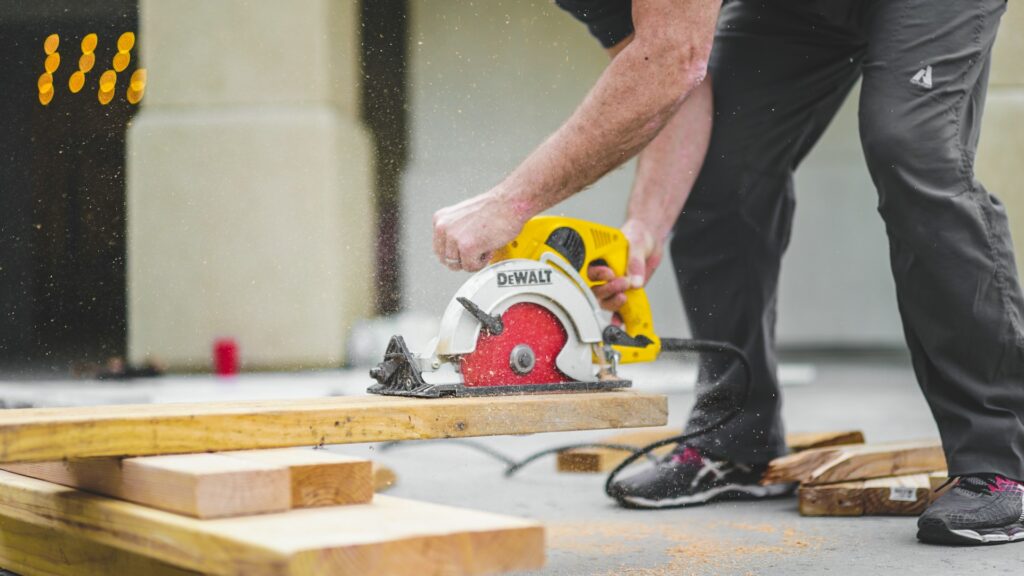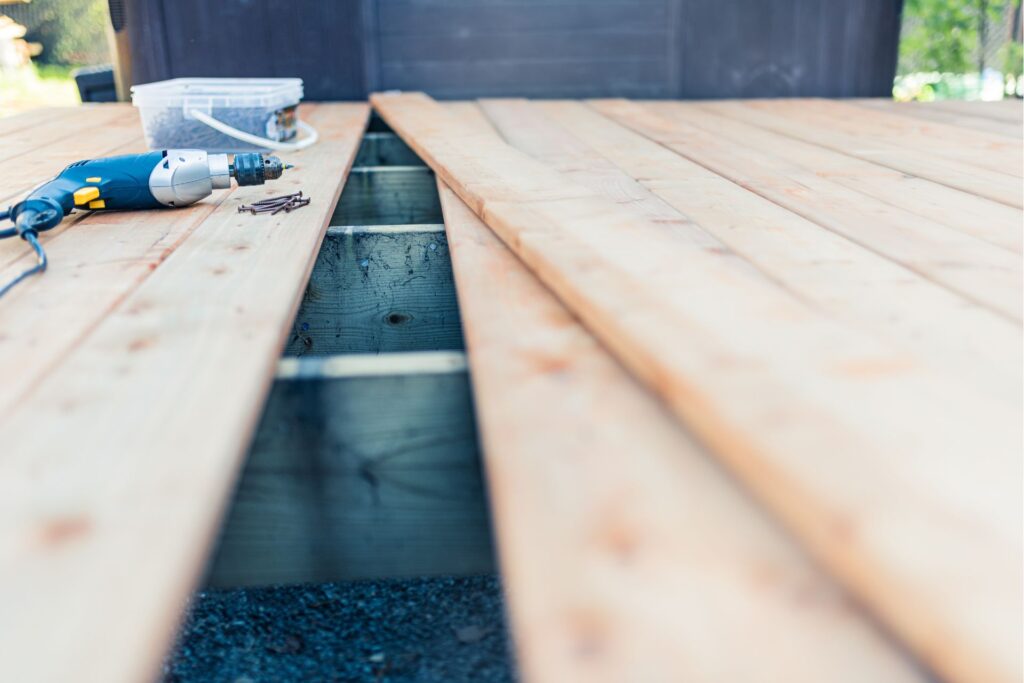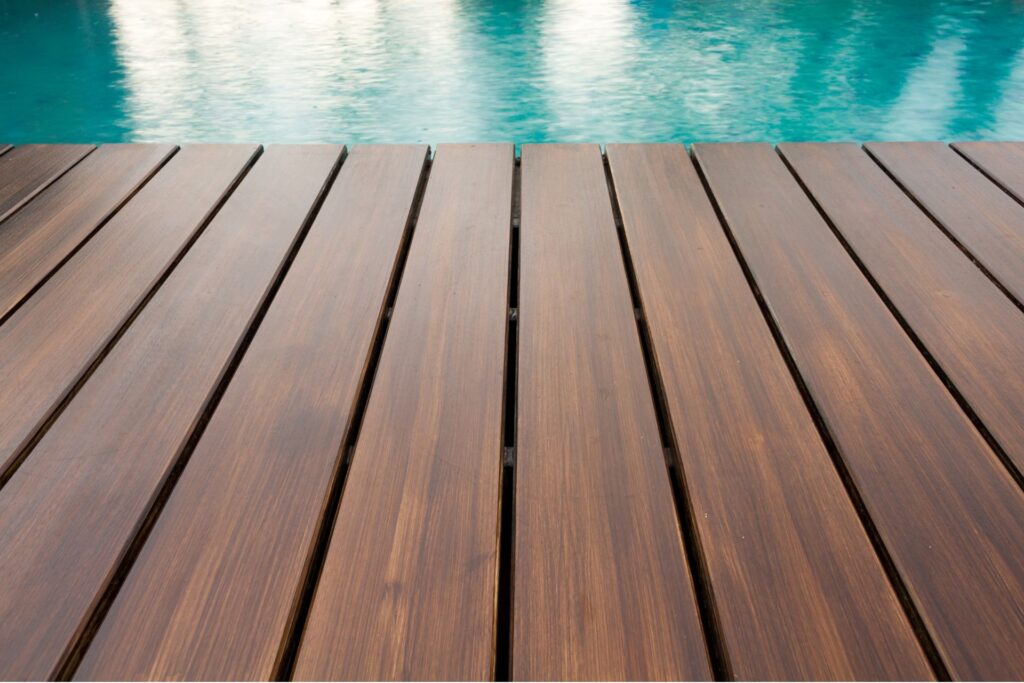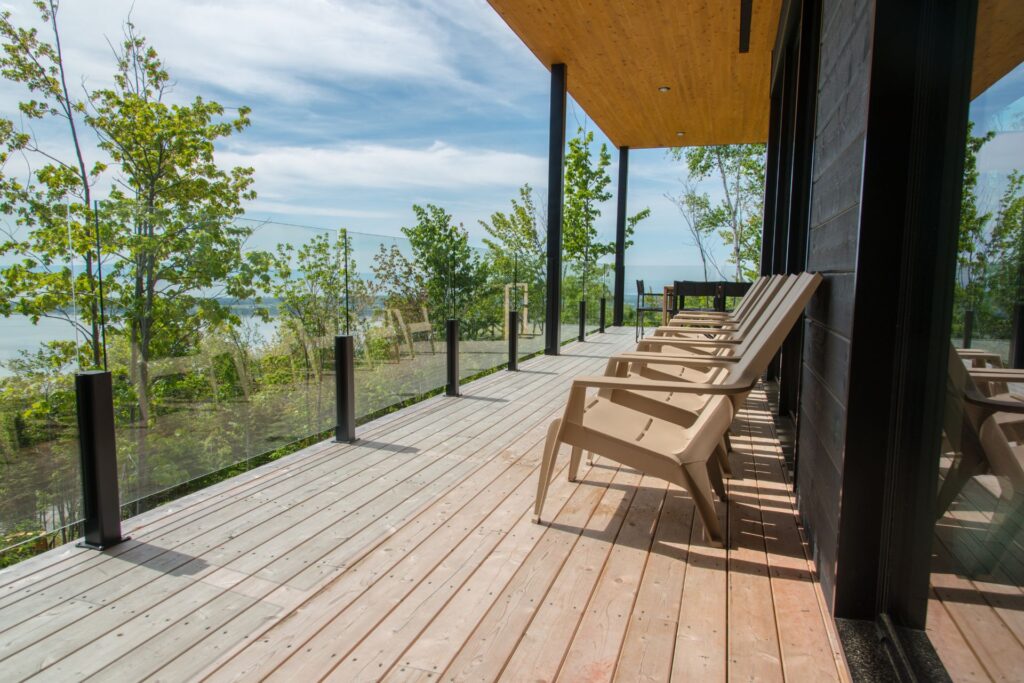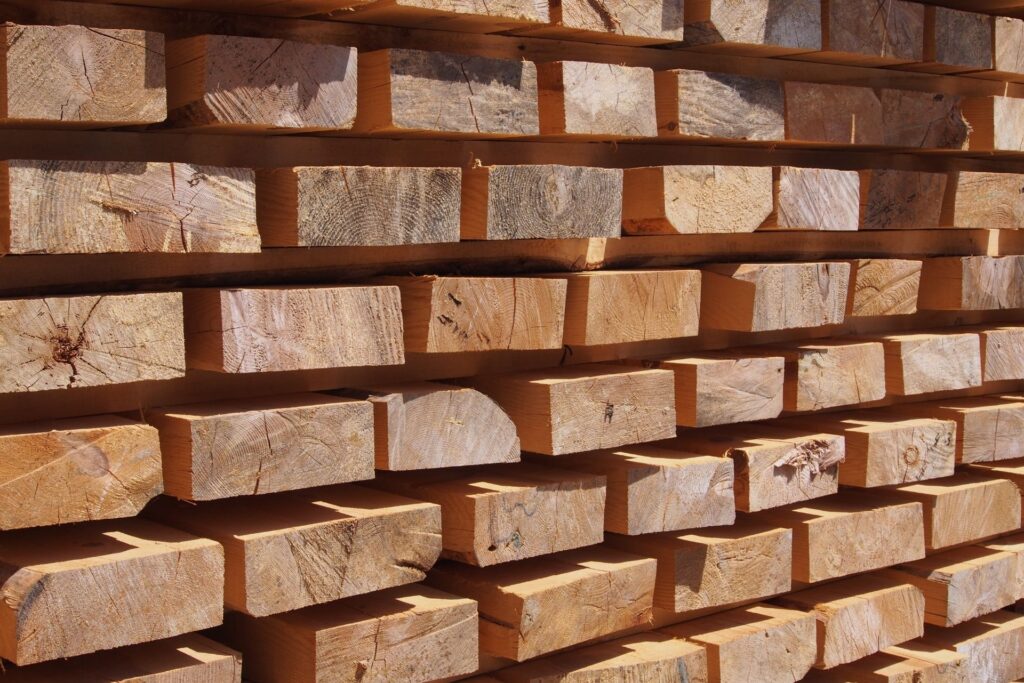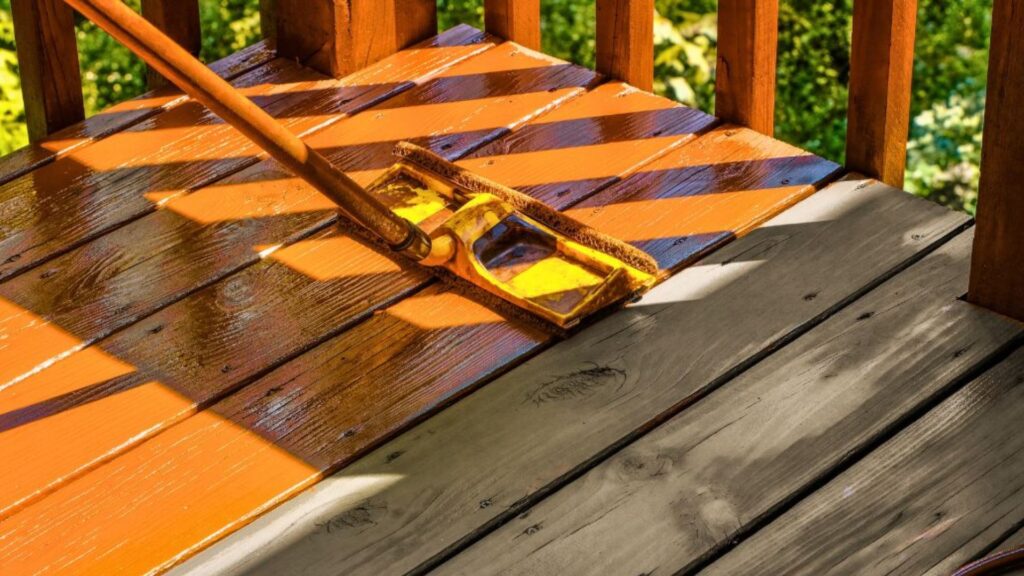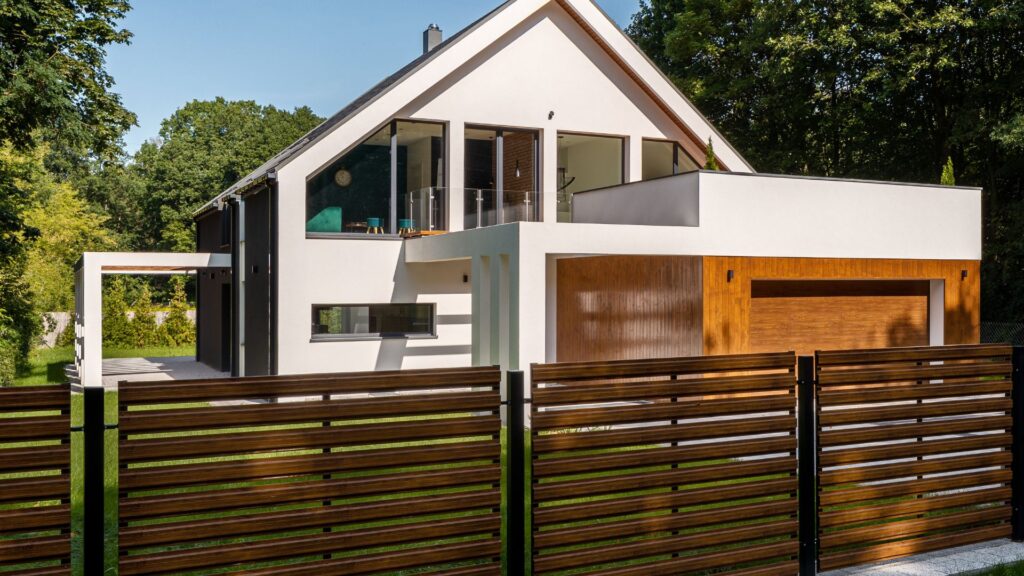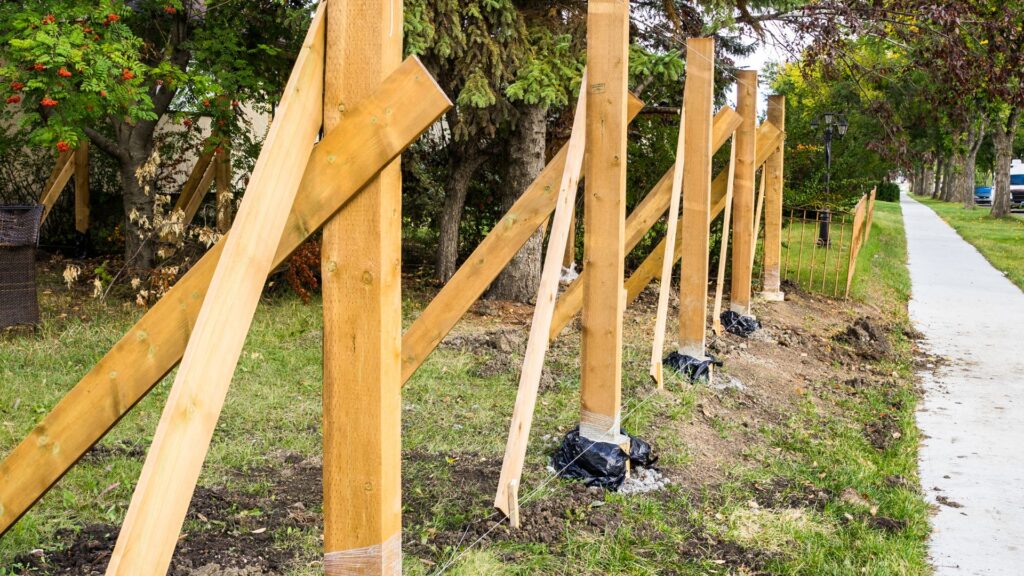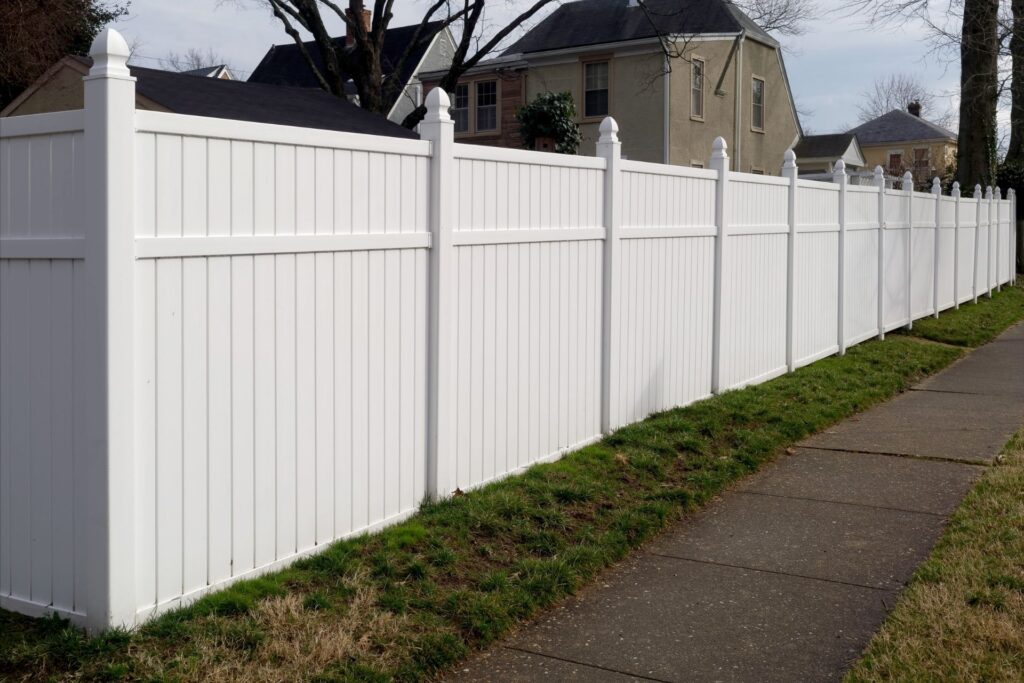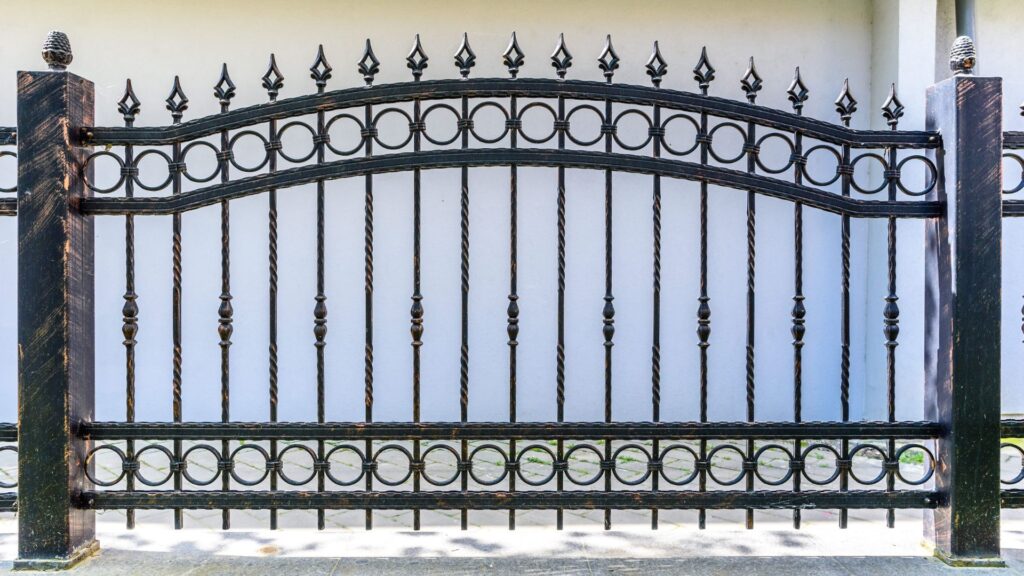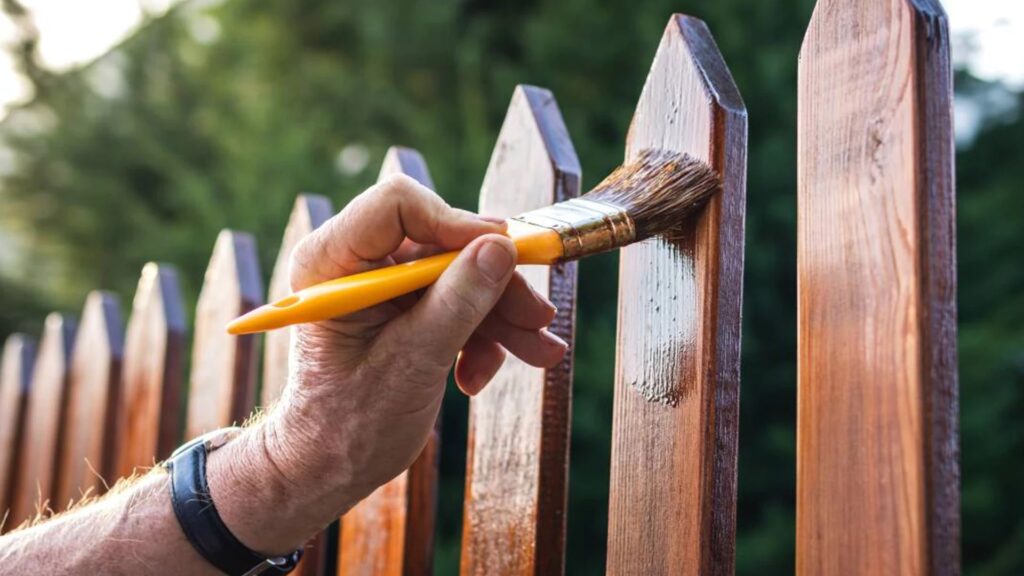Welcome to our comprehensive guide on how long composite fences last! If you’re considering a new fence for your home or property, composite fencing has likely caught your eye for its durability, eco-friendly materials, and low-maintenance appeal. In this post, we’ll dive into everything you need to know about the lifespan of composite fences, from the factors that affect their longevity to tips for extending their life. By the end, you’ll have a clear understanding of why composite fences are a long-term investment that can provide lasting value and peace of mind for decades.
Composite fences typically last 25 to 30 years, with high-quality options lasting up to 50 years. Their longevity depends on factors like the quality of materials, proper installation, climate, and maintenance. Unlike traditional wood fences, composite fences resist rot, weather, and insect damage, making them a durable, low-maintenance choice for homeowners.
Table of Contents
What Are Composite Fences?
Composite fences are a modern fencing option made from a blend of wood fibers and plastic, often utilizing recycled materials. This combination creates a durable, low-maintenance product that is designed to withstand the elements and resist wear over time. Unlike traditional wood fences, which can warp, rot, or require regular upkeep, composite fences are engineered to retain their appearance and strength with minimal effort.
Definition of Composite Fences
At its core, a composite fence is built from a mixture of wood fibers (typically from recycled wood) and plastic (which can also be sourced from recycled products). This composition brings together the natural aesthetic of wood with the resilience and longevity of plastic. The blend results in a material that looks like wood but has the durability and strength of synthetic materials. In addition to the wood-plastic composite (WPC) blend, some composite fences may also incorporate other recycled materials, enhancing their environmental benefits.
Comparison with Other Fencing Materials
When compared to other common fencing materials like traditional wood, vinyl, or metal, composite fences offer distinct advantages.
- Wood Fences: While wood has a classic, natural look, it requires regular maintenance such as staining or painting, and it is susceptible to rot, termites, and weathering. Composite fences, on the other hand, require little to no maintenance and are resistant to these issues, offering the same wood-like appearance but with significantly longer-lasting durability.
- Vinyl Fences: Vinyl is another low-maintenance option, but it lacks the natural aesthetic that composite fences provide. Vinyl can also become brittle over time, especially in extreme weather conditions. Composite fences combine the best of both worlds by offering a more natural appearance with the same low-maintenance benefits of vinyl, but with added strength and resilience.
- Metal Fences: Metal, such as aluminum or steel, is strong and durable but may not provide the privacy or aesthetic appeal many homeowners desire. Composite fences offer a solid barrier, ideal for privacy, and come in a range of styles and finishes that mimic natural wood, giving you both form and function.
Key Features of Composite Fences
Composite fences come with a variety of standout features that make them an excellent choice for homeowners looking for an attractive, long-lasting fencing solution:
- Durability: Composite fencing is designed to last for many years without the common issues faced by wood or other materials. It doesn’t warp, rot, or fade over time, even when exposed to harsh weather conditions. This makes it a great option for areas with extreme temperatures or moisture.
- Low Maintenance: One of the biggest benefits of composite fencing is the minimal maintenance required. Unlike wood fences that need frequent staining, painting, or repairs, composite fences retain their look with just occasional cleaning.
- Environmental Benefits: Many composite fences are made from recycled materials, making them an eco-friendly option. By using reclaimed wood fibers and recycled plastics, composite fences help reduce the environmental impact of deforestation and plastic waste.
- Weather, Rot, and Insect Resistance: Composite fences are inherently resistant to weathering, rot, and insect damage. This makes them ideal for outdoor use, especially in regions where wood fences may quickly deteriorate due to moisture or insect infestations.
In summary, composite fences offer a sustainable, durable, and aesthetically pleasing solution for homeowners who want the look of wood without the hassle of constant maintenance. Their long lifespan, environmental advantages, and low upkeep requirements make them a top choice for modern fencing.

Factors That Affect The Lifespan Of Composite Fences
Composite fences are known for their durability, low maintenance, and long-lasting appeal. However, several factors can influence how long your composite fence will truly last. If you’re considering investing in a composite fence, understanding these key factors will help ensure that your fence remains strong and functional for years to come.
1. Quality of Materials
The quality of the materials used in your composite fence plays a pivotal role in its lifespan. Not all composite materials are created equal. High-grade composites are typically made from a blend of recycled wood fibers and high-density polyethylene, which results in a more durable and weather-resistant product. Fences made from premium materials are better able to withstand the elements, resist fading, and avoid warping or splintering. When shopping for composite fences, always look for products that boast superior material composition, as these will significantly outlast cheaper alternatives. Investing in high-quality materials upfront will save you from premature replacements and costly repairs in the long run.
2. Installation Practices
Even the best materials can fail if not installed properly. Proper installation is essential for ensuring the longevity and stability of your composite fence. Incorrect installation, such as uneven posts, poorly secured panels, or improper alignment, can weaken the structure, causing it to lean, sag, or even break over time. When hiring a professional installer, make sure they have experience specifically with composite materials, as the installation process can differ from traditional wood or vinyl fencing. Attention to detail during installation, including using appropriate hardware and following manufacturer guidelines, will safeguard your fence against premature wear and tear, helping it stand strong for decades.
3. Climate and Environmental Conditions
The local climate and environmental conditions surrounding your fence can have a significant impact on its lifespan. Composite fences are designed to endure harsh weather, but prolonged exposure to extreme elements can still take a toll. In regions with intense sunlight and high temperatures, UV radiation can lead to fading and, in some cases, weaken the material. On the other hand, areas with heavy rainfall, high humidity, or freeze-thaw cycles can cause expansion and contraction of the materials, which may result in cracks or other damage. While composite fences are generally more resistant to these issues compared to traditional wood fences, choosing materials that are specially formulated for your specific climate can further enhance their durability.
4. Maintenance Routine
Although composite fences are marketed as low-maintenance, they are not entirely maintenance-free. Regular care and attention can significantly extend the lifespan of your fence. Simple tasks like cleaning off dirt, debris, or mold buildup with a hose or a soft brush can help maintain the fence’s appearance and prevent potential damage. Staining, painting, or waterproofing is not necessary for composite fences, but inspecting your fence periodically for any loose or damaged components will ensure small issues are addressed before they become major problems. By maintaining a routine cleaning schedule, you can keep your composite fence looking fresh and performing well over time.
5. Brand and Manufacturer Warranty
Another important factor that affects the lifespan of your composite fence is the brand and the warranty offered by the manufacturer. Some composite fence manufacturers provide extended warranties, often ranging from 20 to 30 years, which can give you a clear indication of the expected durability of their products. A longer warranty generally reflects the manufacturer’s confidence in the quality and longevity of the fence. Be sure to review the warranty terms closely, as they can vary significantly from one brand to another, covering different types of damage or deterioration. Opting for a reputable brand with a solid warranty ensures that your investment is protected, and gives you peace of mind knowing that repairs or replacements are covered should anything go wrong.
By considering these five factors—quality of materials, proper installation, environmental conditions, maintenance practices, and the manufacturer’s warranty—you can ensure your composite fence remains a durable, long-lasting addition to your property. Understanding these elements will help you make informed decisions, ultimately increasing the fence’s lifespan while reducing costs associated with repairs or replacements.

Average Lifespan Of Composite Fences
When considering the durability and longevity of your fence, composite materials have become a popular choice among homeowners. Composite fences are made from a blend of wood fibers and plastic, which gives them unique benefits over traditional wood or vinyl options. Here’s a detailed look at what you can expect from composite fencing in terms of lifespan, how it compares to other materials, and real-world experiences from homeowners who’ve invested in this type of fence.
General Expectancy
One of the main reasons people opt for composite fences is their exceptional lifespan. Typically, composite fences last 25 to 30 years, with higher-end products sometimes lasting as long as 50 years. This makes composite fencing an attractive long-term investment for homeowners looking to minimize future maintenance costs and replacements. The blend of synthetic and organic materials used in composite fences helps them resist common issues like rot, warping, and insect damage, which often shorten the life of traditional wood fences.
Comparison with Other Fencing Materials
When comparing composite fences to other common fencing materials, the benefits of longevity become even clearer. Traditional wood fences typically last about 10 to 15 years if maintained properly. However, even with regular maintenance, wood fences are prone to issues like rotting, warping, and pest infestations, which can dramatically reduce their lifespan.
In contrast, vinyl fences have a comparable lifespan to composite fences, lasting 20 to 30 years on average. Both vinyl and composite fencing are relatively maintenance-free, but composite fences offer a more natural wood-like appearance, which many homeowners prefer. Additionally, composite materials are more eco-friendly due to their recycled content, making them a better option for environmentally conscious buyers.
Real-Life Examples
To bring these numbers into perspective, let’s look at some real-world experiences from homeowners who have installed composite fences. One homeowner from Texas shared that their composite fence has lasted over 25 years with minimal fading and no signs of structural damage, despite the harsh sun and weather conditions typical of the area. Another homeowner in the Midwest reported that after 15 years, their composite fence still looks almost brand new, requiring only the occasional wash to remove dirt.
These testimonials showcase the resilience of composite fences, especially when compared to wood, which would likely need several repairs or even replacement over the same period. Many long-time owners of composite fencing appreciate the fact that they don’t have to deal with issues like splintering or repainting, which are common with traditional wood fences.
In conclusion, composite fences offer a superior lifespan compared to wood fences and are on par with vinyl in terms of durability. With proper care, you can expect your composite fence to stand strong for 25 to 30 years or more, making it a smart, long-term investment for any property owner. The blend of strength, durability, and low maintenance makes composite fences a top choice for those looking to enhance their property without worrying about frequent repairs or replacements.

Why Composite Fences Last So Long: Key Advantages
When choosing a fence for your property, longevity and durability are top priorities. Composite fences stand out as an excellent choice due to their long-lasting nature and host of benefits. Below, we’ll dive into the reasons why composite fences outlast many traditional options like wood or metal.
1. Durability and Strength
Composite fences are engineered to withstand the toughest environmental conditions. Unlike wood, which is prone to cracking, warping, and splintering, composite materials maintain their shape and integrity over time. They are designed to handle fluctuating temperatures, high winds, and even physical impacts without showing significant wear and tear. This strength makes them a reliable option for those looking for a low-maintenance, long-term fencing solution.
2. Resistance to Moisture and Rot
One of the biggest threats to traditional wooden fences is moisture. Over time, water can seep into wood, leading to rot, mold, and decay, which weakens the structure. Composite fences, however, are made from a blend of plastic and wood fibers that repel water, significantly reducing the chances of moisture damage. Because they don’t absorb water, they remain solid and free from the mold or rot issues that frequently plague wood fences. This water resistance means your fence will stay looking great and structurally sound for many years.
3. Insect Resistance
Termites and other wood-boring insects are a homeowner’s nightmare when it comes to traditional wooden fences. These pests can compromise the strength of a fence, leading to costly repairs or replacements. Composite fences offer a natural solution to this problem. Since they are made from synthetic materials, they are impervious to termite attacks and other insect-related damage. You won’t have to worry about regular pest control treatments or insect infestations eating away at your fence.
4. UV Protection
Exposure to the sun can cause many materials to fade, weaken, and break down over time. Composite fences, however, are often designed with UV-resistant coatings that protect the surface from harmful sun rays. This UV protection not only helps maintain the fence’s vibrant color for years but also prevents the structural degradation that can occur with prolonged sun exposure. With this added layer of protection, your composite fence will retain its beauty and strength for the long haul.
The long-lasting benefits of composite fences—durability, resistance to moisture, insect protection, and UV defense—make them a smart investment for any homeowner. With little need for maintenance and a robust resistance to common fencing problems, composite fences offer peace of mind and superior performance. When you’re looking for a fence that will stand the test of time, composite is a reliable, low-maintenance choice that delivers lasting results.

Maintenance Tips To Extend The Lifespan Of Composite Fences
Composite fences are popular for their durability, low maintenance, and aesthetic appeal. However, like any outdoor structure, they still require some care to ensure they remain in top condition. Below are some essential maintenance tips that will help extend the lifespan of your composite fence and keep it looking fresh for years to come.
1. Regular Cleaning
One of the simplest yet most effective ways to maintain your composite fence is through regular cleaning. Over time, dirt, dust, and debris can accumulate on the surface, potentially leading to stains or scratches. Here’s a step-by-step guide on how to clean your fence effectively:
- Use a mild detergent: Start by preparing a solution of mild soap or detergent mixed with water. Avoid harsh chemicals or abrasive cleaners that might damage the composite material.
- Soft brush or cloth: Gently scrub the surface with a soft brush or a cloth to remove dirt and grime. Pay attention to any areas where leaves or organic material might have accumulated, as these can cause mold or mildew to grow over time.
- Rinse thoroughly: Once you’ve scrubbed the fence, rinse it thoroughly with a garden hose to ensure no soap residue is left behind. Soap buildup can dull the appearance of the fence and attract more dirt.
Cleaning your composite fence every few months or after any harsh weather conditions will help keep it in prime condition and prevent any long-term damage.
2. Regular Inspection for Damage
Composite fences are known for their resilience, but that doesn’t mean they are immune to damage. Regular inspections can catch small issues before they become bigger problems. Here’s what to look for:
- Loose or unstable posts: Over time, posts can become loose due to shifting soil or wear and tear. Make sure each post is securely anchored to avoid structural issues.
- Cracks or warping: While composite materials are less prone to cracking or warping compared to wood, it’s still important to inspect for any signs of damage, especially after storms or heavy impact.
- Hardware check: Examine any bolts, screws, or brackets holding the fence together. If any hardware is missing or loose, replace or tighten it immediately to avoid further damage.
By inspecting your fence at least once a year, or after any major weather event, you can extend its life and maintain its safety and structural integrity.
3. Avoid Pressure Washing
While it may be tempting to use a pressure washer for a quick cleaning job, this is not recommended for composite fences. Here’s why:
- Potential damage to surface coatings: Composite fences often come with protective coatings that enhance their resistance to the elements. Pressure washing can strip away these coatings, exposing the material to potential damage from the sun, rain, and debris.
- Risk of scratches or dents: The high pressure from the water can cause scratches or dents on the surface, which not only affects the fence’s appearance but could also make it more vulnerable to further damage.
Instead of pressure washing, stick to the method of gentle scrubbing with a mild detergent and water, as this will protect the integrity of your fence without causing unnecessary harm.
By following these simple maintenance tips—regular cleaning, inspections for damage, and avoiding pressure washing—you’ll ensure that your composite fence remains a beautiful and functional part of your property for many years to come. Taking care of your fence doesn’t require much effort but can significantly extend its lifespan, saving you from costly repairs or replacements down the line.

The Role Of Warranty In Lifespan
When investing in a composite fence, understanding the role of warranties is crucial. Warranties provide insight into the product’s expected longevity and performance, helping homeowners make informed decisions.
Understanding Warranties
A manufacturer’s warranty can be a strong indicator of how long your composite fence is designed to last. Typically, the length of a warranty reflects the manufacturer’s confidence in their product. For example, a longer warranty—say 25 years or more—often suggests that the manufacturer believes the fence will stand the test of time. This is an important factor to consider, as it signals that the company is willing to stand behind their product for decades, offering peace of mind to the buyer.
In contrast, shorter warranties might indicate that the product is more prone to wear and tear or that the company is less certain about its longevity. So, as a homeowner, it’s essential to consider not just the upfront cost but also the long-term durability of the fence, which can be reflected in the warranty period.
What Warranties Cover
While the length of the warranty is important, what it actually covers is equally vital. A robust warranty on a composite fence typically includes coverage for things like:
- Structural Integrity: This guarantees that the fence will not warp, rot, or break under normal conditions.
- Fading: Over time, exposure to the elements may cause some materials to fade. A warranty that covers fading ensures that your fence maintains its appearance for years to come.
- Staining: Some warranties also protect against staining caused by environmental factors or common spills.
Homeowners should closely review the details of what is covered under warranty. It’s important to know whether the warranty is prorated, meaning the coverage diminishes over time, or if it provides full replacement or repair for the duration of the warranty period.
Tips for Choosing a Reliable Manufacturer
To ensure you’re getting the most out of your investment, it’s important to choose a manufacturer that offers a strong, reliable warranty. Here are a few tips for selecting a trustworthy brand:
1. Research the Warranty Terms: Look for brands that offer lengthy warranties, typically 25 years or more, and carefully review what is included in the coverage.
2. Read Customer Reviews: Previous customers can provide valuable insights into how well a company’s warranty process works in real life. Look for feedback on how the manufacturer handles claims and whether customers have been satisfied with the resolution.
3. Check for Comprehensive Coverage: Look for warranties that cover not just structural damage but also aesthetic issues like fading and staining. This can be a sign of a manufacturer who stands behind both the appearance and functionality of their product.
By understanding the role of warranties, you can make a smarter, long-term investment in your composite fence, ensuring it stays looking great and functioning well for years to come.

Pros And Cons Of Composite Fences
Composite fencing has become an increasingly popular choice among homeowners due to its blend of durability, low maintenance, and aesthetic appeal. Below, we’ll explore the pros and cons of composite fences, giving you a clear picture of whether this type of fencing is right for your needs.
Pros of Composite Fencing
- Long Lifespan (25-30+ years): One of the biggest advantages of composite fencing is its longevity. Unlike traditional wood fences, which may require replacement every 10-15 years, composite fences can last upwards of 25-30 years or more. This makes them an excellent long-term investment for homeowners looking for a durable fencing solution.
- Low Maintenance: Composite fences require very little upkeep compared to wood fences, which often need staining, sealing, or painting every few years. With composite fencing, there’s no need to worry about frequent maintenance tasks, saving both time and money over the fence’s lifespan.
- Resistant to Weather, Rot, and Insects: Unlike wood, which can warp, rot, or be damaged by termites and other pests, composite fences are designed to withstand harsh weather conditions and are resistant to rot and insect damage. This resilience makes them ideal for areas with extreme climates or high humidity levels.
- Eco-Friendly: Many composite fences are made from recycled materials, such as plastic and wood fibers, making them an environmentally friendly option. Choosing composite fencing helps reduce waste and promotes sustainability, a growing concern for eco-conscious homeowners.
- Aesthetic Appeal: Composite fencing offers a wide range of styles and colors to suit various design preferences. Whether you want the look of natural wood, modern sleekness, or something in between, there’s likely a composite fencing option that matches your taste. Additionally, the color and style options help ensure that your fence complements the overall design of your property.
Cons of Composite Fencing
- Higher Upfront Cost: One of the main drawbacks of composite fencing is its initial price tag. Composite fences are generally more expensive than traditional wood fences, which can make them less appealing to homeowners on a tight budget. However, when considering the long lifespan and low maintenance costs, many find that composite fences offer better value in the long run.
- Fading Over Time: While composite fences are designed to be highly durable, they can experience some fading over time, especially when exposed to constant sunlight. The extent of fading can vary by brand and product quality, but it’s something to keep in mind if maintaining color vibrancy is a priority.
- More Difficult to Repair: Another disadvantage of composite fencing is that it can be more challenging to repair than wood. If a section of the fence becomes damaged, it may be more difficult to replace individual boards without affecting the overall look or structure. In contrast, wood fences tend to be easier to repair by swapping out damaged boards.
Composite fencing offers a range of benefits, including a long lifespan, minimal maintenance, and eco-friendliness. However, it also comes with a few downsides, such as higher upfront costs and potential fading. If you’re looking for a fence that’s durable, stylish, and environmentally responsible, composite fencing might be a great fit. However, for those who prioritize cost and ease of repair, traditional wood fencing may be a better option.

Is A Composite Fence Worth The Investment?
When considering whether a composite fence is worth the investment, it’s important to weigh both the initial cost and long-term value. While composite fences often come with a higher upfront price tag, their benefits over time make them an attractive option for homeowners seeking durability, aesthetic appeal, and minimal upkeep.
Cost Breakdown
One of the key factors to consider when choosing a fence material is cost. Composite fences are generally more expensive initially compared to wood and vinyl. The cost of a composite fence can vary depending on the brand, design, and size of your yard, but it tends to be higher than traditional wood fencing or vinyl options.
- Wood Fencing: Wood is typically the most affordable option when it comes to initial installation costs. However, wood fences require regular maintenance, including staining, sealing, and repairs due to weathering, rot, or insect damage. Over time, these maintenance tasks add up, increasing the overall cost.
- Vinyl Fencing: Vinyl is usually less expensive than composite fencing but more costly than wood. While vinyl is relatively low-maintenance compared to wood, it may become brittle or discolored over time, requiring occasional repairs or replacements.
- Composite Fencing: Composite fences are constructed from a blend of wood fibers and plastic materials, designed to mimic the natural look of wood while providing greater durability. The initial investment for composite fencing is higher than wood or vinyl, but its long-term advantages make it a smart choice for many homeowners.
Value Over Time
Although the upfront cost of a composite fence might seem steep, it’s crucial to think about the long-term value. Composite fences are engineered to last significantly longer than wood or vinyl, offering a lifespan of 25 to 30 years or more with minimal maintenance. This long lifespan means you won’t have to worry about frequent repairs, repainting, or replacing sections of your fence, as you might with wood or vinyl.
Additionally, composite fences are highly resistant to weather damage, rotting, warping, and insect infestation. This durability translates to fewer repair costs and less hassle over the years. Unlike wood, composite doesn’t require staining or sealing, and it maintains its appearance with little more than occasional cleaning.
For homeowners who want a fence that stands the test of time and retains its aesthetic appeal with minimal effort, composite fencing is a wise investment. Not only does it offer long-term savings by reducing the need for repairs and maintenance, but it also enhances the property’s value, making it an attractive feature for potential buyers if you decide to sell your home in the future.
In conclusion, while composite fences may require a higher initial investment than wood or vinyl, they provide substantial savings and peace of mind in the long run. Their durability, low-maintenance requirements, and long lifespan make composite fences a sound financial decision for those looking to invest in quality and reliability.

FAQs: About How Long Do Composite Fences Last
How long do composite fences last?
Composite fences typically last between 25 to 30 years, and some high-quality fences can last up to 50 years. The lifespan depends on factors such as material quality, installation, and environmental conditions.
What factors affect the lifespan of a composite fence?
Several factors influence the lifespan of a composite fence, including the quality of the materials used, proper installation, climate and weather exposure, and regular maintenance. High-grade composite fences tend to last longer, especially when installed correctly.
Are composite fences more durable than wood fences?
Yes, composite fences are generally more durable than wood fences. Composite materials are resistant to rot, insects, and weather damage, unlike wood, which can warp, crack, or deteriorate over time due to moisture and pests.
Do composite fences require maintenance?
Composite fences require very little maintenance compared to wood fences. Occasional cleaning with water and mild detergent is usually enough to keep them looking good. Regular inspections for damage and debris buildup are recommended to extend their lifespan.
Can composite fences fade over time?
While composite fences may experience slight fading after prolonged exposure to sunlight, many manufacturers now offer UV-resistant coatings to minimize fading. Choosing a high-quality composite fence can reduce this effect significantly.
Are composite fences environmentally friendly?
Yes, composite fences are considered eco-friendly because they are often made from recycled materials such as wood fibers and plastic. This makes them a sustainable choice compared to traditional wood fencing, which relies on new lumber.
Can I install a composite fence myself, or should I hire a professional?
While it’s possible to install a composite fence yourself if you’re experienced with home improvement projects, it’s recommended to hire a professional for best results. Proper installation is key to ensuring the fence’s durability and longevity.
Are composite fences more expensive than wood or vinyl fences?
Composite fences are typically more expensive upfront than wood fences, but their long lifespan and low maintenance costs make them a more cost-effective option over time. They are comparable in cost to vinyl fences but often offer better durability.
Do composite fences come with warranties?
Yes, many manufacturers offer warranties on composite fences, typically ranging from 20 to 30 years. Some warranties cover issues like structural integrity, fading, and staining. It’s a good idea to review warranty terms when purchasing.
Can composite fences be painted or stained?
Composite fences are designed to retain their color without the need for painting or staining. However, if desired, some types of composite fences can be painted. Be sure to consult the manufacturer’s guidelines before painting or staining a composite fence.
Conclusion
In conclusion, composite fences offer a durable, long-lasting solution for homeowners seeking both aesthetic appeal and functionality. With their impressive lifespan and minimal maintenance requirements, these fences provide a practical alternative to traditional wood or metal options. They resist weathering, insects, and rot, making them an ideal investment for those looking to enhance their outdoor spaces with minimal upkeep. Choosing a composite fence is not only a smart decision for your home’s appearance but also a cost-effective one in the long run. If you’re considering installing a fence, reach out for expert advice or a consultation to explore how composite fencing can meet your needs and elevate your property’s value.
About the Author:
Mike Veail is a recognized digital marketing expert with over 6 years of experience in helping tradespeople and small businesses thrive online. A former quantity surveyor, Mike combines deep industry knowledge with hands-on expertise in SEO and Google Ads. His marketing strategies are tailored to the specific needs of the trades sector, helping businesses increase visibility and generate more leads through proven, ethical methods.
Mike has successfully partnered with numerous companies, establishing a track record of delivering measurable results. His work has been featured across various platforms that showcase his expertise in lead generation and online marketing for the trades sector.
Learn more about Mike's experience and services at https://theleadguy.online or follow him on social media:


